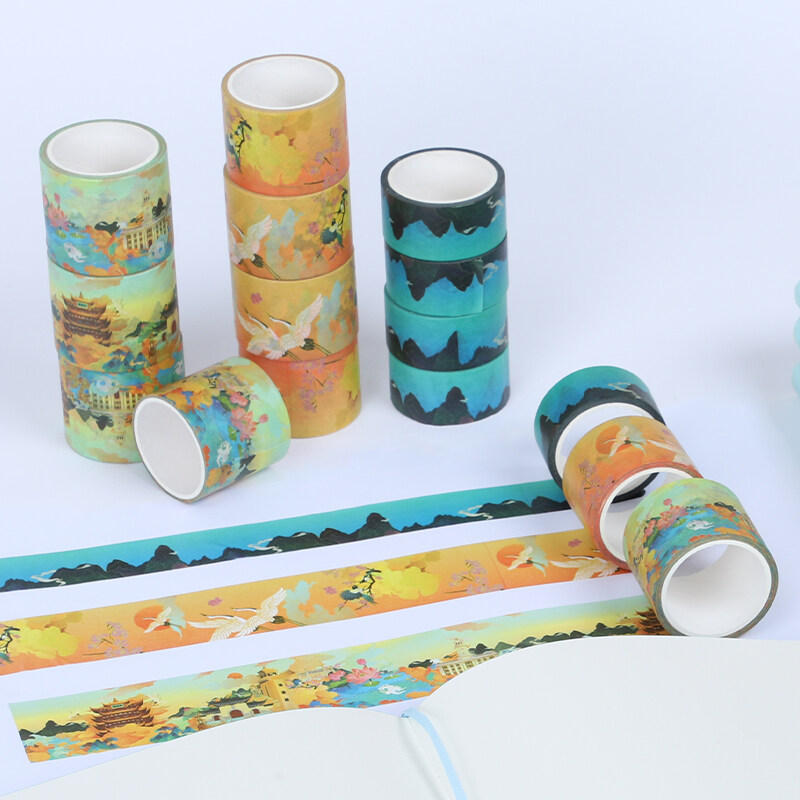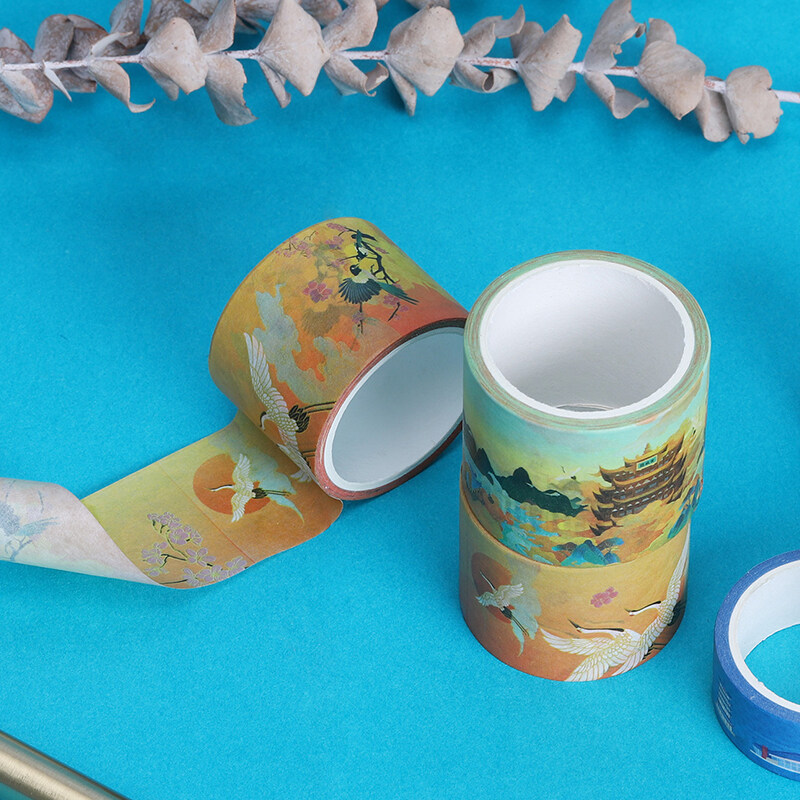Email format error
Email cannot be empty
Email already exists
6-20 characters(letters plus numbers only)
The password is inconsistent
Email format error
Email cannot be empty
Email does not exist
6-20 characters(letters plus numbers only)
The password is inconsistent


In today's world of personalization and self-expression, the demand for unique and customizable products continues to rise. Among these trending items, custom printed washi masking tape has taken center stage. Going beyond the conventional function of adhesive tapes, washi masking tapes offer an extensive range of creative possibilities.
What is Washi Masking Tape?
Washi masking tape originates from Japan and is made using traditional methods that date back centuries. The term "washi" refers to Japanese paper, which is known for its durability, softness, and ability to be easily torn by hand. The material used to craft washi masking tapes is derived from renewable plant fibers such as bamboo, hemp, or rice straw. This environmentally friendly aspect adds to the tape's appeal among eco-conscious consumers.
Exploring Customization Possibilities
One of the key features that set custom printed washi masking tape apart is the ability to customize its design and patterns. This opens up a myriad of creative opportunities for individuals, businesses, and artists alike. From personalized messages to intricate drawings and patterns, the possibilities are endless.

The Production Process
Custom printed washi masking tapes are meticulously produced in specialized factories. Let's take a closer look at the steps involved:
1. Design and Artwork: The production process begins with the creation of unique designs or patterns. This can be done digitally using graphic design software or through traditional methods such as hand-drawing. The chosen artwork is then scanned and prepared for printing.
2. Printing: The design is transferred onto a master roll, which is a large-scale version of the intended tape width. This master roll is then used to create smaller individual rolls of washi masking tape. There are various printing techniques available, including screen printing, flexographic printing, or digital printing, depending on the intricacy of the design and desired production volume.
3. Cutting and Packaging: After printing, the master roll is sent to a cutting machine where it is precisely cut into standard roll sizes, typically ranging from 10 to 30 meters. These individual rolls are then packaged and prepared for distribution.
Quality Control and Assurance
To ensure the highest quality standards, custom printed washi masking tape factories have established rigorous quality control processes. These measures include thorough inspections during each production stage, from raw material selection to printing and packaging. The tape's adhesive strength, durability, and overall visual appeal are carefully evaluated to meet customer expectations.
Market Demand and Applications
The growing popularity of custom printed washi masking tapes can be attributed to its versatility and wide range of applications. These tapes are often utilized in art and craft projects, journaling, scrapbooking, gift wrapping, and DIY home decorations. Additionally, businesses can leverage custom washi masking tapes as a unique branding tool, incorporating their logos, taglines, or contact information on the tapes.
Conclusion
Custom printed washi masking tapes have emerged as a means of creative self-expression and branding. The factories behind their production play a crucial role in bringing unique designs to life. As the demand for individuality and personalization continues to rise, custom printed washi masking tape factories will keep fueling creativity and empowering individuals to express themselves in new and exciting ways.